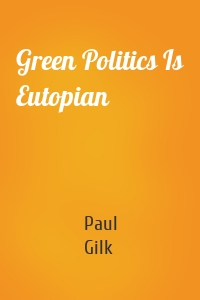Paul Gilk
3 кн.
Polemics and Provocations
In the twelfth century, an Italian monk named Joachim caught the attention of the Christian West by announcing the Three Ages of the World. Joachim arrived at his formulation by a meshing of the Christian Trinity with the Old and New Testaments, proclaiming–in sequence–the Age of the Father, the Age of the Son, and the Age of the Holy Spirit. In the early modern period, however, archaeologists uncovered the remains of an agrarian village social stratum that predates the rise of civilization....
| Автор | Paul Gilk |
The Kingdom of God Is Green
In the early 1970s, living in inner-city St. Louis, Paul Gilk asked his friends to explain why small farms were dying. The answers did not satisfy. Years of study followed. Through the reading of history, Gilk began to grasp the origins of both horticulture and agriculture, their blossoming into Neolithic agrarian village culture, and the impoundment of the agrarian village by bandit «aristocrats» at the formation of what we now call civilization. Getting a grip on the relationship between...
| Автор | Paul Gilk |
Green Politics Is Eutopian
Various thinkers have attempted to explain the Earth-altering (even ecocidal) features in modern life. Jacques Ellul, for instance, a French intellectual, became famous for his exposition of «technique.» But «technique» does not adequately address the institutional incubation out of which «technique» itself arises. In these essays, Paul Gilk stands on the shoulders of two American scholars in particular. One is world historian Lewis Mumford, whose career spanned fifty years. The other is...
| Автор | Paul Gilk |




